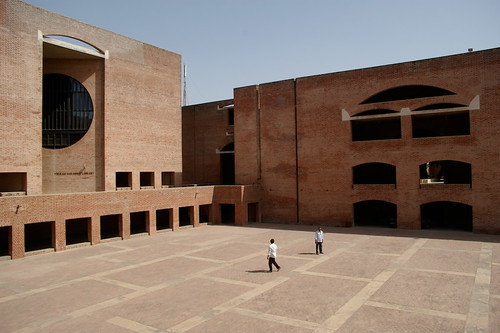Games countries play
August 6, 2010 Leave a comment
As most people in India already know, the Delhi government is shakily preparing to host the Commonwealth Games 2010. Shakily because the city doesn’t seem any more close to being ready than when I visited in April, and January before that. While the closet is barely built, skeletons have already started to pop out. At an alarming rate. The joys of being the host to multi-national games. Woo hoo!
There are two events this past week that caught my attention. Number One was the past Sports Minister wishing for the rains. Why, you ask? Because, “firstly it will ensure a good agriculture for the country and secondly it will ensure that the Commonwealth Games are spoilt”. God bless the last remaining free-speaking-politician in India, but this is hilarious. Of course, the Commonwealth Organizing Committee Chief was quick to get the party brass to pull a gag order on his errant colleague, and has this to say about him… (had he) “continued as the sports minister, India could never have hosted the Game”. Political intrigue. Where would we be without it!?
Number two, the skeletons. The routine fare of desi anti-corruption brigade. The leaky roofs. The stinky pools. The “friendly” tennis court contract. It’s all showing up exactly two months before the actual event. Read this. If the corruption surrounding the IPL is any indication, this episode would get murkier very soon.
That calls for a separate post on the faulty economics of hosting multi-national games. Scores of research papers have been written about the lack of a “business case” for countries to play host to these expensive shows. The same debate is playing out as we speak in London, which is host to the 2012 Summer Olympics.
Here’s a summary of one report: (link here)
Cities vigorously compete to host sports mega-events because they perceive that doing so will enhance their image and stimulate their economies. International sporting events require substantial expenditures on infrastructure, organization and security and critically depend, therefore, on public subsidization. The ability of event promoters to secure public funds often depends on convincing a sometimes skeptical public that hosting the event generates economic profit. A motive for exaggerating the impact of a mega-event clearly exists. Our own previous examinations of mega-events, as well as the research of other independent scholars suggest that the true economic benefits are typically far less than the numbers touted by promoters. Cities and countries would be well advised to more thoroughly evaluate booster promises of a financial windfall from hosting a sports mega-event such as the World Cup and Olympics before committing substantial public resources to such an event. Indeed, hosting these premier events may be more of a burden than an honor.
Here’s the IMF’s take on the story playing out in UK around the 2012 Olympics. (Link here)
London expected its 2012 Games to cost less than $4 billion, but they are now projected to cost $19 billion (Sports Business Daily, 2009). As expenses have escalated, some of the projects have been scaled back—for example, the planned roof over the Olympic stadium has been scratched—but the stadium will still end up costing more than $850 million, against the initial projection of $406 million. The government has been unsuccessful in its effort to find a soccer or rugby team to be the facility’s anchor tenant after the 2012 Games. This will saddle British taxpayers with the extra burden of millions of dollars annually to keep the facility operating. It is little wonder that London Olympics Minister Tessa Jowell said, “Had we known what we know now, would we have bid for the Olympics? Almost certainly not” (Sports Business Daily, 2008, citing the London Telegraph).
These events are white elephants. The facilities created for these events are rarely used again with the same vigour. Instead, the cities are saddled with a maintenance bill that they cannot afford.
Should have paid for another airport in India. Or a dozen. Just a suggestion!

Comments